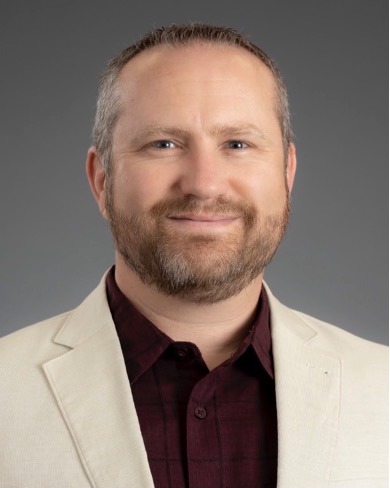HRFL Analytics and Innovation Research Committee Conference Preview
By Shellie Halstead, Ed.D., SHRM-SCP and Professor Abram Walton, Ph.D.
We’re continuing efforts that began in 2019, when the HR Florida Analytics and Innovation Research Committee began specifically focusing on identifying and delivering content targeting the topics and services that research showed was most valuable to you. We are excited to share that we will be continuing our presence at the HRFL annual conference, offering sessions that help close the academic-practitioner gap and align with the needs identified through our voice of the customer research. At the 2025 HR Florida Conference we will have a pre-conference session and two concurrent sessions, all with the specific goal of presenting academic-practitioner research in a way that is both meaningful to and usable by the practitioner. We hope to meet you there.
Pre-Conference Session
Sunday August 24th from 9:00 AM – 12:00 PM
AI Unlocked: Finding, Focusing, and Fueling the Right Opportunities for Your Organization
At the heart of this session is a belief that AI should not be approached as an isolated technology project but rather as a strategic enabler that touches every facet of the business — from HR development, to operational excellence, to new innovations. By synthesizing established frameworks with AI’s cutting-edge capabilities, you can create an environment ripe for ongoing innovation and sustainable success. The session will challenge you to think both pragmatically — by focusing people, process, and technology — and philosophically, by considering the deeper question of how AI will reshape the very notion of work and value within your organization. Whether you are an HR leader, a process improvement specialist, or a C-suite executive, you will be engaged by industry leading experts and leave with the clarity, tools, and collaborative strategies you need to guide your firm confidently into an AI-augmented future.
Foundations of AI – We begin with an in-depth look at the core principles and fields of AI. You will learn to view AI through a business and HR lens, and distinguish among the capabilities and enhancements made possible by natural language processing (NLP), machine learning (ML), reinforcement learning (RL), computer vision (CV), and other emerging areas such as generative AI and agentic systems. We will also discuss the implications of the increasingly relevant intersection of AI with robotics—ranging from fully autonomous systems on factory floors to “cobots” that intelligently collaborate with employees on repetitive or high-precision tasks.
Strategic Forecast for AI in HR and Business – No area of HR will remain untouched by AI. From recruitment and onboarding to performance management, compensation, employee wellness, organizational development, and succession planning; we will spotlight where AI is already reshaping best practices—and where it is likely to do so in the future. We will explore AI’s present and projected impact across the enterprise through the examination of real-world case studies where AI has improved speed to market, lowered error rates in repetitive tasks, and reshaped how companies manage global workforces. Attendees will also learn to recognize the ethical and legal implications of AI-based decision-making, from mitigating bias in HR selection processes to ensuring data privacy across AI-driven systems.
Building an AI-Ready Team and Culture – Successful AI adoption goes beyond simply implementing a technology solution. Organizations must foster a culture that embraces data-driven decision-making, experimentation, and continuous learning. This session will offer strategies for assembling and managing cross-functional AI teams, drawing on internal experts as well as external partners—such as data scientists, AI consultants, and software vendors. You will also learn how AI can unearth organizational culture patterns, helping HR teams more accurately forecast turnover or engagement risks.
Opportunity Identification and Prioritization – Knowing where AI can have the greatest impact requires a robust framework for systematically identifying and evaluating “opportunity spaces” for AI. We will examine methodologies for reducing waste, refining workflows, and ensuring quality outcomes along with a structured approach to “opportunity identification” and “opportunity evaluation,” helping you discover the low-hanging fruit where AI can be rapidly deployed, as well as the more revolutionary shifts that require significant planning. Throughout, we will employ a framework for considering unconstrained, blue-sky possibilities before translating them into more realistic, incremental improvements – encouraging creativity and ensuring that genuinely disruptive AI ideas are fully vetted and not prematurely discarded.
Speaking the C-Suite’s Language: Quantifying and Monetizing AI Initiatives – One of the most common obstacles to AI adoption is the inability to clearly articulate its financial and strategic return on investment (ROI). We will delve into ways to monetize AI’s benefits, whether through improved operational efficiencies, reduction in error rates, time savings for employees, or enhanced customer satisfaction. You will also discover how to create powerful data visualizations and storytelling techniques that resonate with C-level executives and board members.
Workshop Activities and Reflective Application – Moving beyond theory, the final portion of our pre-conference session will include hands-on exercises that enable you to apply everything you have learned in a collaborative environment. Using “outcome-driven innovation” methodologies, this shared workshop experience will help solidify your learning, giving you the confidence to return to your organization with practical action steps, realistic timelines, and an energized vision of AI-empowered processes.
Concurrent Sessions
Tuesday, August 26th at 2:45 PM
Fortifying your Recruitment and Workforce Strategies to Win the AI-Driven Talent War
HR leaders are bracing for the next wave of AI disruption, evidenced by skyrocketing application numbers and a sea of nearly identical résumés. In this session, we’ll explore how to pivot from reactive hiring to a proactive, future-ready approach via Strategic Workforce Planning (SWP). We’ll detail a cohesive model for aligning people, data, and technology to create a talent pipeline that grows with your business—whether you’re a lean startup or a sprawling enterprise. Plus, we’ll review emerging tools and tactics for authenticating résumés and filtering out AI-generated noise without stifling genuine innovation. Learn how to convey to executives that AI targets tasks, not entire roles, and how to articulate the enduring value of human-centric skills. By the session’s end, you’ll have the playbook to overcome budget battles, unify stakeholders, and safeguard your workforce strategy from the uncertainties of an AI-driven future.
Wednesday, August 27th at 9:45 AM
Teaming Architects: HR’s Role in Diagnosing and Elevating Team Performance
In an era where digital disruption and artificial intelligence are reshaping every facet of work, HR stands at a pivotal crossroads—one demanding both reinvention and bold leadership. HR leaders confront an organizational battleground where competing priorities, including AI-driven initiatives in recruitment, selection, hiring, training, retention all vie for strategic investment. To successfully navigate the never-ending onslaught of competitive pressures, we must ask ourselves how Human Resources can effectively and synergistically partner with teams to strengthen cooperation, communication, and cohesion across the organization, while increasing performance and quality of work life.
This session explores how to use AI strategies and tools to help analyze group dynamics, identify high and low performing teams, and implement proven methods for elevating team interactions. Participants will learn practical strategies to foster healthier team behaviors and drive more effective collaboration, resulting in a culture of continuous improvement and greater overall impact. Whether you’re seeking to revitalize existing teams or set new teams up for success, this session provides methods and processes by which HR professionals can leverage AI research and insights to make HR the catalyst for high-performing teamwork.
Please join us to explore one, or even all, of these research-focused topics.
Happy learning!
Dr. Shellie Halstead, SHRM-SCP, HR Florida Director of Analytics and Innovation
Professor Abram Walton, Ph.D., HR Florida Analytics and Innovation Research Committee Lead

Dr. Shellie Halstead has worked in human resources in the United States and Japan since 2004, and is the Director of Strategy for the Lee County Tax Collector. Her former roles include CHRO and Director of Performance, Innovation, and Training. She teaches the Human Resources course in the DBA program at Florida Tech and serves as a committee member for doctoral dissertations. She earned her doctorate in Organizational Leadership, her SHRM-SCP, a Black Belt in Lean Six Sigma, and is a certified Project Management Professional. She is a United States Delegate to ISO’s Technical Committee for Innovation Management Standards (ISO/TC 279) Terminology and Definitions working group and has served on the SHRM Southwest Florida Board as President, President-Elect, Past President, Scholarship Chair and Director of Workforce Readiness and is a member of the HR Florida State Conference Committee.

Dr. Abram Walton is a Full Tenured Professor of Management at Florida Tech. Specializing in Management and Innovation, among other areas, he is also the Executive Director for Florida Tech’s Center for Innovation Management and Business Analytics (CIMBA). With over 20 years of research and consulting experience, Dr. Walton has made significant contributions to fields such as Innovation Management, Human Capital Management, Leadership, Business Analytics, and Digital Twins. He is a renowned speaker at national and international conferences, consulting with major corporations like NASA, GE, Alstom, Harris, Bristol Myers Squib, and Delta on topics including leadership, lean process improvement, innovation strategies, and new product development. Dr. Walton’s diverse expertise, extensive publications, and involvement in academic journals and non-profit boards demonstrate his commitment to advancing knowledge and fostering innovation.